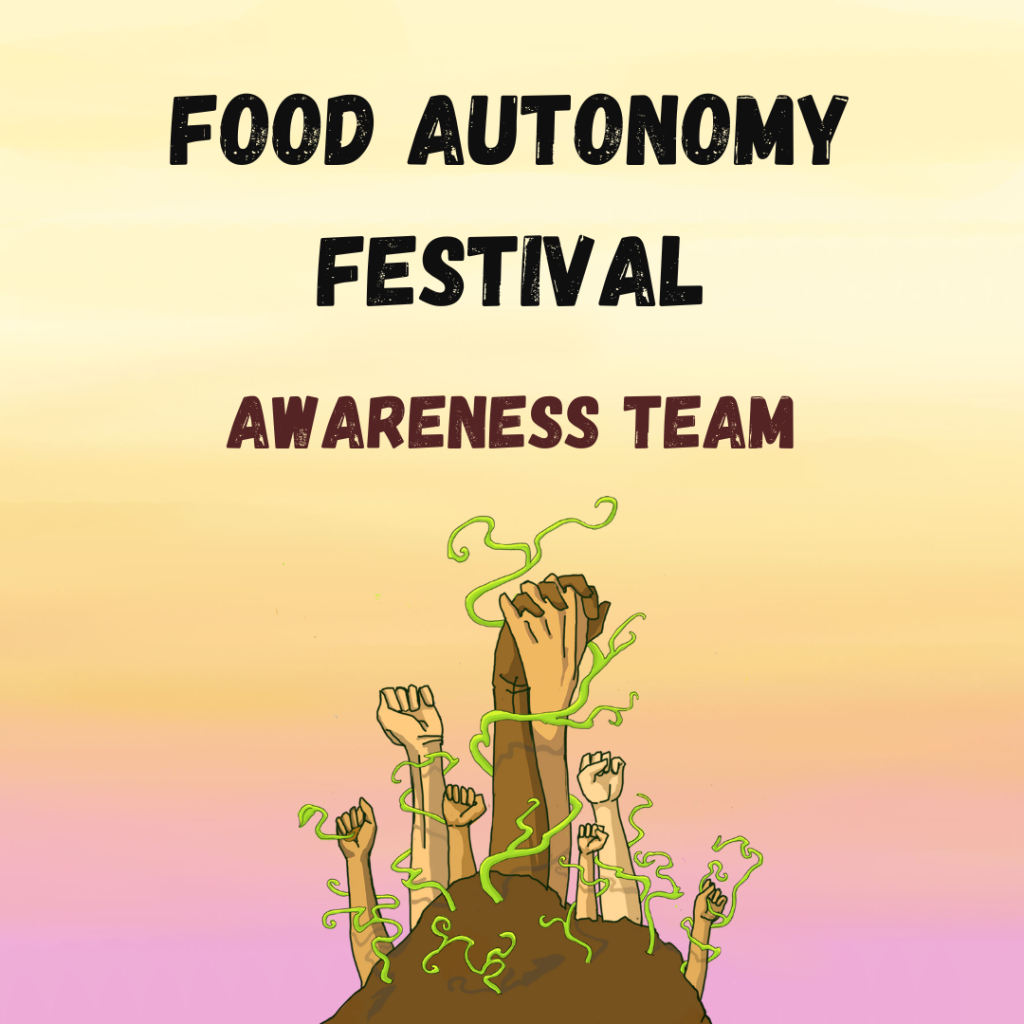What is the purpose of the Awareness team?
- Create a safer space agreement that we work actively to follow
- Incorporate accessibility and intersectionality into the planning of the location and programme to a certain extent
- Ensure a (physically) safe environment, including a low-sensory area
- Give awareness volunteers appropriate (but not exhaustive!) training prior to the festival
- Be approachable, visible, and attentive to social and physical environments
- Do our best to de-escalate arising conflicts and listen to the target of discrimination/violence/oppression. Conflicts are difficult.
On the one hand, awareness work includes prevention. In other words, the creation of conditions that minimize the possibility of discrimination and violence in advance.
On the other hand, awareness work includes concrete offers of support. Ideally, to support all people who are affected by the overall oppressive systems, such as patriarchy, racism, ableism, classism, etc. We explicitly address people who have become the target of violent behaviour, as well as people who have acted violently.
But you can also come to us if you for any other reason need someone to listen to and support you.
The implementation of awareness, through prevention, support for affected people, and transformative processes, is the responsibility of the whole group. Violence must always be seen in the context of the conditions that make it possible. Without participation, further education, and reflection of the entire group, we cannot achieve a space with low levels of discrimination.
As an awareness working group, we see ourselves as a driving force for awareness work at the Food Autonomy Festival. We want to stimulate and accompany processes of anti-oppression education and reflection. We want to raise awareness of forms of discrimination by introducing the issues and encouraging joint and individual reflection.
What are the limitations if the awareness team?
- We are limited in numbers and cannot be in all locations at all times
- We cannot provide medical/therapeutic help. But we can offer active listening, without judging. When people need rest, we can bring them to the low-sensory space. We cannot give real advice beyond the festival
- We are not neutral/impartial if there’s a power dynamic/oppression at play
- We cannot, of course, prevent discrimination/oppression/violence, but will address it within our means
- If there is a conflict rooted in systemic oppression, this will be addressed explicitly, and priority will be given to the person discriminated against. Our approach will not (necessarily) be solutions-oriented, but to listen to and accommodate the target.
We always have to weigh up each matter for ourselves personally and realistically assess our available resources. We may therefore not always be able to deal with a concern to the desired extent. Members of the awareness team divide shifts, which means that not everyone is available during the whole weekend.
Furthermore, we do not see ourselves in a position to provide professional medical or therapeutic help. We also do not see our task in mediating in conflict situations as a neutral authority between the disputing parties, if there’s a power dynamic/oppression at play.
We are not perfect and still learning. This means that our awareness concept can fail. We, too, may be wrong in some of our approaches or react differently than we would wish ourselves to. We, therefore, welcome any constructive feedback and will continue to adapt and develop this concept and our way of working.
We also cannot prevent discrimination from happening. The oppressive dynamics that shape our society will also find their way into the festival, but collectively, we can limit the extent of this.
Who can join the awareness team?
To participate in the awareness team, we do not anticipate any special previous knowledge. It is however important that the participants are open to further education and to question their own patterns of thinking and behaviour, often deriving from places of privilege. It is essential that we are open to critical questions and discussions. We are happy to receive constructive feedback.
[This text is based on awareness EG Hamburg]
Does that sound like something you would be interested in helping out during the festival?
If so, that means that you would:
– Handle conflicts that might arise, such as instances of discrimination
– Be visible, approachable and attentive, being there for people who might need support
– Work with an awareness buddy who will be at a shift with you
– Disclaimer: we are not asking you to take on professional-level mediation, care work, or therapy, we are just volunteers
Volunteering includes participation during the festival duration and a short training session for members of the Awareness team on the topic of basic conflict resolution, intersectionality, and anti-oppression. No previous experience or skills are needed. The working hours are flexible and we can try to work around everyone’s schedule.
We are unfortunately unable to financially compensate our volunteers. As a thank you, we will offer free food and some drinks at the festival, as well as a small gift. It is also a great way to engage with ASEED and the FAF, and learn a valuable skill that can be used for other movements and events.
📞 Interested?
Send us a message at info@aseed.net. Let us know in case there are any accessibility issues we can help you accommodate. We are very excited to hear from you!
If you want to volunteer, you can join a training on conflict resolution:
When: Sunday 9th June, 11:00-17:30
Where: MKZ
By who: the Stroomversnellers
For who: awareness volunteers & the ASEED team
Follow up: there will be a session for the core awareness teams after the FAFs to look at how specific situations were handled, as a learning opportunity for both us and the trainers. We don’t have a date for that yet and will let you know if there end up being open spaces for people who also generally do awareness work.
Send us a message/email as soon as possible, if you want to help out and/or participate at the training!

